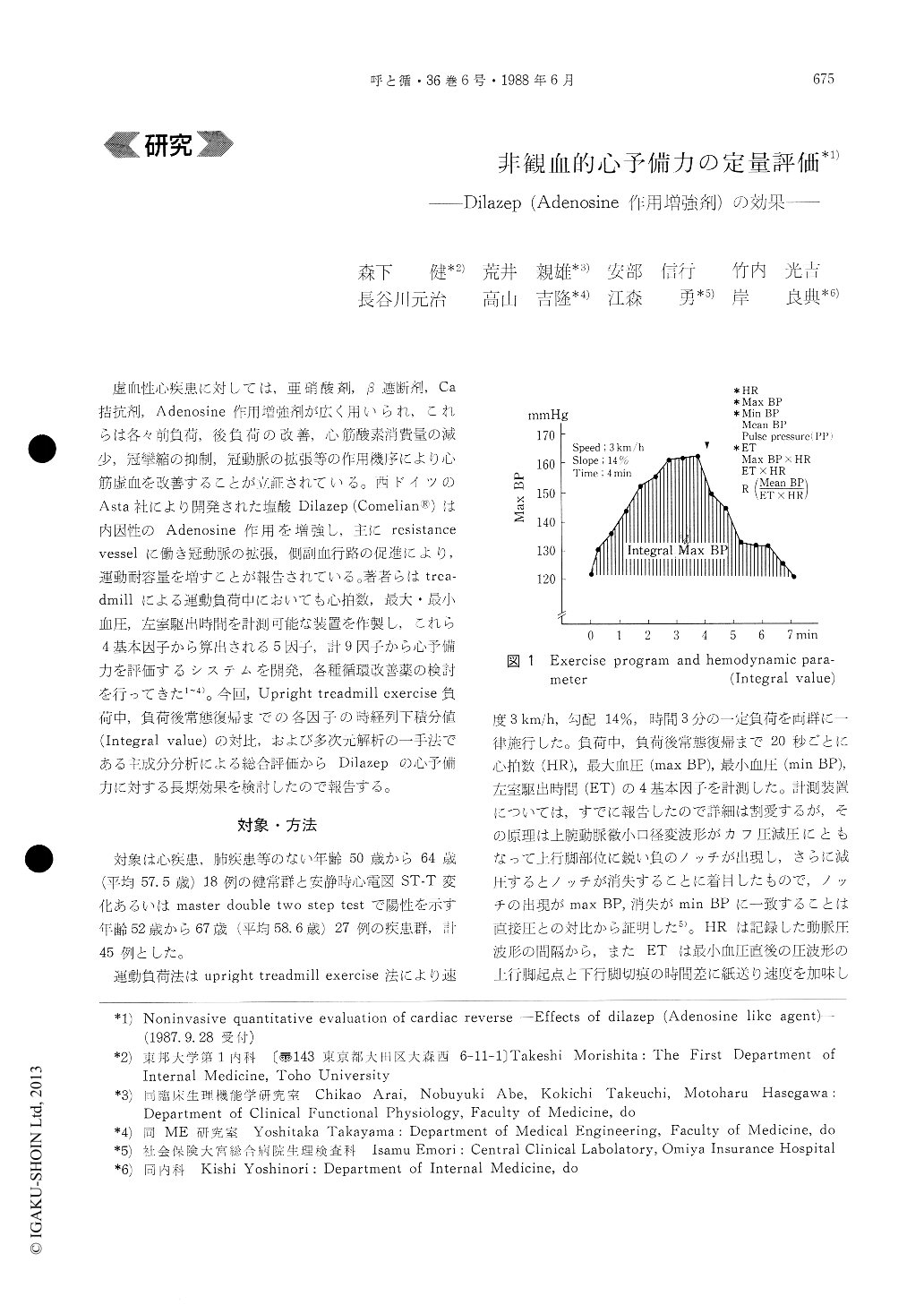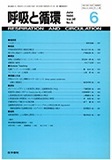Japanese
English
- 有料閲覧
- Abstract 文献概要
- 1ページ目 Look Inside
虚血性心疾患に対しては,亜硝酸剤,β遮断剤,Ca拮抗剤,Adenosine作用増強剤が広く用いられ,これらは各々前負荷,後負荷の改善,心筋酸素消費量の減少,冠攣縮の抑制,冠動脈の拡張等の作用機序により心筋虚血を改善することが立証されている。西ドイツのAsta社により開発された塩酸Dilazep (Comelian®)は内因性のAdenosine作用を増強し,主にresistancevesselに働き冠動脈の拡張,側副血行路の促進により,運動耐容量を増すことが報告されている。著者らはtrea—dmillによる運動負荷中においても心拍数,最大・最小血圧,左室駆出時間を計測可能な装置を作製し,これら4基本因子から算出される5因子,計9因子から心予備力を評価するシステムを開発各種循環改善薬の検討を行ってきた1〜4)。今回,Upright treadrnill exercise負荷中,負荷後常態復帰までの各因子の時経列下積分値(Integral value)の対比,および多次元解析の一手法である主成分分析による総合評価からDilazepの心予備力に対する長期効果を検討したので報告する。
It has been reported that dilazep hydrochloride enhances the action of intrinsic adenosine and acts mainly on the resistance vessels, dilating coronary arteries and enhancing the collateral circulation. In this study, HR, max BP, min BP, and ET were measured in human subjects before and during the test on a treadmill (a gradient of 14% and at a speed of 3 km/hr for 3 min) and after recovery. With these 4 factors and 5 additional factors derived from them such as mean BP, pulse pressure, max BP×HR, ET×HR, and mean BP/(ET×HT) (R), the integral values of these factors were calculated so as to evaluate effects of dilazep on cardiac reserve. Subjects consisted of 18 normal subjects (averaging 57.6 years) and 27 patients with ischemic heart disease (averaging 58.6 years). The ischemic patients received orally 300 mg/day of dilazep for 1 year. After the treatment, hemodynamic parameters such as max BP×HR and R were lowered, and the principal component analysis of the above 9 factors showed an improvement toward more normal condi-tions, indicating that dilazep is capable of increas-ing cardiac reserve.

Copyright © 1988, Igaku-Shoin Ltd. All rights reserved.


